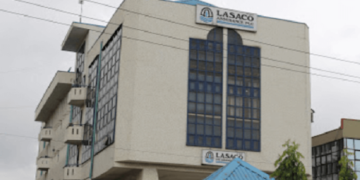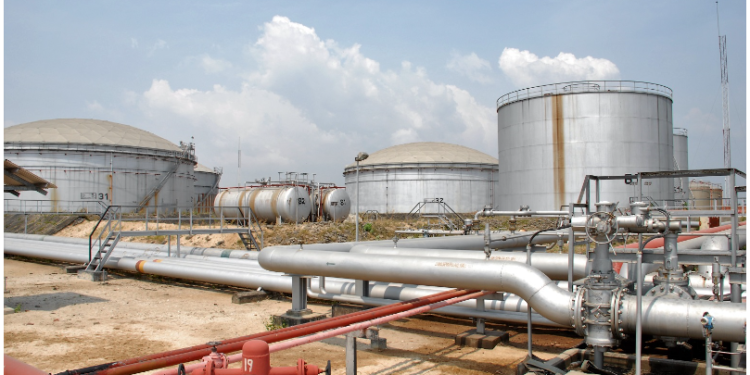No fewer than seventy eight (78) companies responded to a tender publication by the Nigerian National Petroleum Corporation (NNPC) tagged “Request for pre-qualification of companies for the rehabilitation of NNPC downstream critical pipelines and associated depots/terminal infrastructure through Finance, Operate and Transfer (BOT) model.”
All pre-qualification documents were to have been submitted online through the electronic NNPC/NipeX Tender Portal on or before 12:00 Noon, 18th September, 2020 to www.nipex-ng.com. The documents were thereafter opened virtually, with the entire process visible to all parties following the deadline for bids submission.
- Read also;
- WHO endorses protocol for Africa’s COVID-19 herbal medicine clinical trials
- Emirates Airlines barred from operating in Nigeria – FG
In his opening remarks at the tender opening, the Group Managing Director of the NNPC, Mallam Mele Kyari noted that the Finance, Build, Operate and Transfer (BOT) model became imperative in the Corporation’s journey to rehabilitate its downstream infrastructure which over time have become vulnerable, lost value and integrity due to age and incessant vandalism.
“Our pipeline network is completely compromised, for two things. One is age, we have not invested in these pipelines for a very long period of time, and they have deteriorated over period of time as a result of age and natural integrity loss. There are several actions of vandals across pipeline networks in the country…” Mallam Mele Kyari stated.
He went further to state that the pipelines that are to be constructed would be in such a manner that the act of simple vandals cannot compromise it and that this requires resources the NNPC does not have today.
As a company, he said; “it requires huge capital, it needs huge investment, we have too many things in our hands, and we believe that this strategy of getting other third parties to come into it is the best was out of it.”
“Some of these assets are as old as forty years (40) years and they are due for replacement and when you want to do a replacement of this scale, you do need a lot of resources.
“And we know that we require these assets so we decided that we bring in private partners who will fund these pipelines, they will construct it, they will operate it with us and then ultimately they will fully recover their investment from the tariff which we will pay for using these pipelines and as soon as they recover their cost and their margin, they will hand over these assets back to us,” Mallam Kyari informed.
What are the assets and scope of the work?
According to the tender publication seen by Investogist, the rehabilitation and/or construction of crude oil and petroleum product pipelines and the upgrade of petroleum product storage Depots scope of work shall cover but not limited to:
- Engineering, Procurement, Construction, Installation, Testing, Commissioning and Training (EPCI);
- Funding the entire Project cost including the EPCI; and
- Operation of the revamped facilities over a defined period to allow for full recovery of cost and agreed compensation.
The Rehabilitation of the pipelines and associated Depots / Terminal Infrastructure will be through a Finance, Build, Operate and Transfer (BOT) model and will be awarded on LOT basis.
A company is allowed to express interest in a maximum of two (2) LOTS. However, multiple bid winners will be awarded only one (1) LOT where they are most competitive.
Prospective Companies will therefore be required to submit as part of the Pre-qualification documents indicating the LOT(s) of their interest. The LOTS are categorized as follows:

Who is responsible for the Maintenance of these Oil Assets?
NNPC’s pipeline and Depot network is an integral national asset, the operation of which started in 1979 by the defunct Pipelines and Products Marketing Sector (PPMS). The organization was later renamed Pipelines and Products Marketing Company (PPMC) in 1988.
NNPC Management however, with the support of the Federal Government, unbundled the old PPMC to among others, have a separate entity overseeing the crude and product pipelines and storage network.
The restructuring of PPMC in 2016 gave rise to the creation of Nigerian Pipelines and Storage Company (NPSC), which is charged with the responsibility for operations and maintenance of NNPC’s pipeline and depot facilities.
In it’s audited financial statements for 2018, which is the latest financial statement available to the public, NPSC reported a revenue of N44.400 billion from contracts with customers. N42.753 billion was tariff from product transportation through pipelines.
It went on to spend N1.498 billion on rendering services which comprised of depot repairs and maintenance (N962.359 million), and jetty expenses (N536.081 million).
In 2018, NPSC spent N43.670 billion on administrative expenses, and recorded a loss before tax of N767.825 million.
Writers view
NNPC is being lauded for its “transparency” in this bid process, it is well and good for bid processes in Nigeria to be transparent, and even better when it comes from one of the most opaque institutions in the country.
This writer begs for NNPC to throw more light on this initiative by providing answers to some pertinent questions; how much have the bidders estimated is necessary to complete the rehabilitation of the oil assets, how much will the NNPC pay for the use of these assets, will it be at a fixed price rate applicable to all companies, how much margin does the company need to make before relinquishing the asset back to the NPSC, is there an estimated number of years this should take?
Answers to such questions are very important for better understanding and constructive criticism of this venture. Mallam Kyari had stated in his opening remarks that by the end of the first quarter of 2021, the final partners of the bid opening would be selected.
Should this be successful, NNPC would have to look at what it does with its loss making machines called refineries.
Written by;
Nnamdi M.






















































